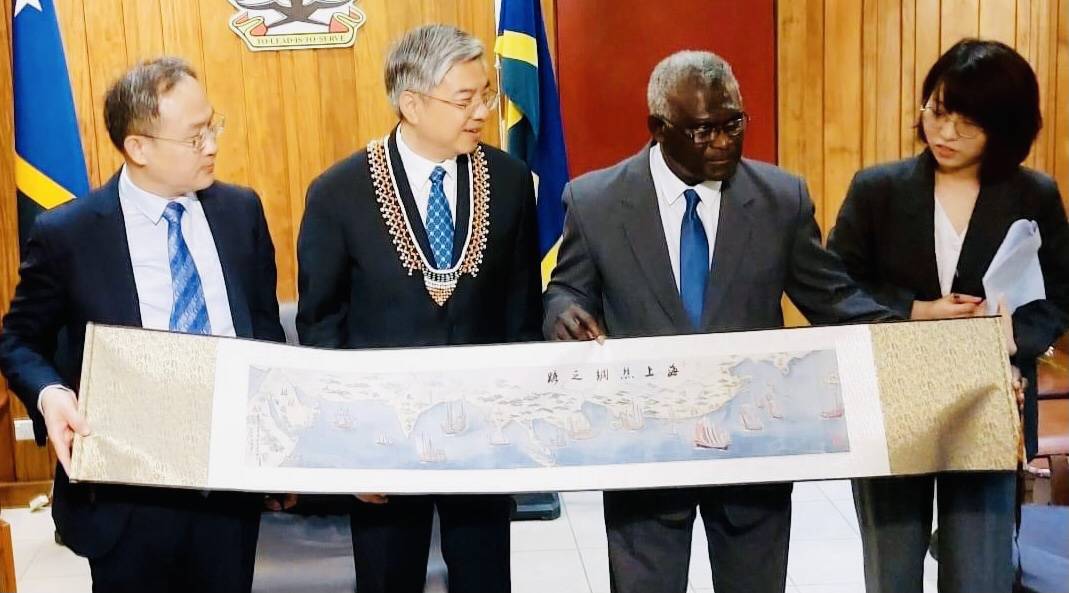Dozens of athletes from the Solomon Islands will train in China for three months to sharpen their competitiveness for the Pacific Games in November, underlining the intention of both countries to make the sporting event a showcase of Chinese-Pacific cooperation.
China is covering more than half the cost of the quadrennial games that will be staged in the Solomon Islands capital Honiara. Several thousand athletes from two dozen Pacific island countries and territories are expected to compete in the events.
The training arrangements were formalised Monday after a meeting between Solomon Islands Prime Minister Manasseh Sogavare, Chinese Ambassador Li Ming and officials from the China International Development Cooperation agency. The two countries also signed a memorandum of understanding to deepen China’s broader development assistance.
Reporters were allowed to take photos after the signing but not to ask questions.
“During the brief courtesy visit, Solomon Islands and People’s Republic of China engaged in cordial, in-depth and rewarding communication that enhances SI-PRC cooperation,” Sogavare’s office said in a statement.
When the 80 Solomon Islands athletes return from China they will be accompanied by nine Chinese coaches who will continue their training up until the games, according to information provided to BenarNews by Sogavare’s office.
The games are an example of Chinese largesse in the Pacific region, where Beijing and the United States are competing for influence. A U.S delegation led by Kurt Campbell, the White House’s Indo-Pacific coordinator, is visiting Pacific island countries this week including the Solomon Islands.
The Solomon Islands is aiming to win 40 gold medals at the 2023 games, which would be a record haul for the country. It brought home four golds from the 2019 Pacific Games and frequently none at earlier games, which have been held every four years since the early 1960s.
At a one-year-to-go event in November last year, National Hosting Authority Chairman Jimmie Rogers bemoaned how neighbouring countries with populations of little more than 10,000 people had outcompeted the Solomon Islands – the third most populous Pacific island nation – in past games.
China is contributing half of the approximate SBD$1.85 billion (US$226 million) cost of the Pacific Games – which includes construction of the main stadium and other facilities – and the Solomon Islands government nearly one third. Australia, Indonesia, Papua New Guinea and Japan also have made contributions.
Sogavare’s government switched its diplomatic recognition to Beijing from Taiwan in 2019. And in April last year, it signed a security pact with China that alarmed the United States and its allies.
Some in the Solomon Islands, including opposition leader Matthew Wale, have criticised the focus on the games when the country is struggling with a lack of basic healthcare and infrastructure.
Others say that in a country still predominantly rural, the games won’t have any impact outside Honiara and will reinforce the gap in development with other islands.
Tonga pulled out of hosting the 2019 Pacific Games after the government decided it was unaffordable for the island country of some 100,000 people.
